
10 Best Shopify Apps to Help You Grow in 2023
Want to grow your eCommerce Shopify store? We’ve compiled a list of 10 essential apps you need this year to successfully scale your business, so keep reading!
Shipping, Tracking & Notifications
Boost customer experience and reduce support tickets
Realtime order and shipment tracking
Proactive order and shipping notifications
AI-Enhanced Discounted Labels
Predictive pre-purchase estimated delivery dates
Self-Serivce branded order tracking
Effortless experience delivered
Identify and Resolve Order Issues
Realtime order and shipment tracking
Make returns profitable and delight customers
Flexibility to define any return destinations & conditions
Simplify returns for your customers and team
Incentivize exchanges over returns
Returns management made easy for your team
Returns management made easy for your team
Easy claims and smart upsells
Understand why your customers are returning
In-Store & Curbside Pickup
Unify the online and the in-store experience
Hassle-free pickup experience for customers
In-Store dashboard to keep operations streamlined
In-Store and Online orders unified
Drive foot-traffic to your stores
Shipping, Tracking & Notifications
Boost customer experience and reduce support tickets
Realtime order and shipment tracking
Proactive order and shipping notifications
AI-Enhanced Discounted Labels
Predictive pre-purchase estimated delivery dates
Self-Serivce branded order tracking
Effortless experience delivered
Identify and Resolve Order Issues
Realtime order and shipment tracking
Make returns profitable and delight customers
Flexibility to define any return destinations & conditions
Simplify returns for your customers and team
Incentivize exchanges over returns
Returns management made easy for your team
Returns management made easy for your team
Understand why your customers are returning
In-Store & Curbside Pickup
Unify the online and the in-store experience
Hassle-free pickup experience for customers
In-Store Dashboard to keep operations streamlined
In-Store and Online orders unified
Drive foot-traffic to your stores
Boost customer experience and reduce support tickets
Realtime order and shipment tracking
Proactive order and shipping notifications
AI-Enhanced Discounted Labels
Predictive pre-purchase estimated delivery dates
Self-Serivce branded order tracking
Effortless experience delivered
Make returns profitable and delight customers
Flexibility to define any return destinations & conditions
Simplify returns for your customers and team
Incentivize exchanges over returns
Returns management made easy for your team
Equip your team for precise return checks.
Easy claims and smart upsells
Understand why your customers are returning
Unify the online and the in-store experience
Hassle-free pickup experience for customers
In-Store Dashboard to keep operations streamlined
In-Store and Online orders unified
Drive foot-traffic to your stores
Find the answer to all your questions
Take a step by step trip through our functionality to see how we can improve your ecommerce processes.
Explore the most comon questions about WeSupply
Calculate the ROI that WeSupply can bring you
Read actionable articles on how to optimize your post-purchase experience and decrease support tickets
Get inspired by stories of how our customers implemented an effortless post-purchase experience
Wondering if WeSupply is a good fit for you? Read through our use cases to see how we can help you increase conversion & improve CX!
A Deep Dive into Top Companies' Order Tracking & Returns Strategy
Find the answer to all your questions
Explore the most comon questions about WeSupply
Calculate the ROI that WeSupply can bring you
Request a no strings attached review of your current shopping experience and missed conversion opportunities
Take a step by step trip through our functionality to see how we can improve your ecommerce processes.
Read actionable articles on how to optimize your post-purchase experience and decrease support tickets
Get inspired by stories of how our customers implemented an effortless post-purchase experience
A Deep Dive into Top Companies' Order Tracking & Returns Strategy
Wondering if WeSupply is a good fit for you? Read through our use cases to see how we can help you increase conversion & improve CX!
[FREE CHECKLIST – Automated Return Policies]
Cut unnecessary costs: reduce the time spent on returns by 80%. Help your team focus on what really matters for enterprise growth, not wasting time processing returns in Shopify.
23 Return Policies designed to automate your return flow.

It’s another Monday morning. You go to Shopify admin and then click on Orders.
You manually go through all orders to choose the one you want to refund.
This asks for another coffee already.
Not to mention that you’ll also have to manually create or upload a return shipping label. For each return.
No doubt, if you run an eCommerce business on Shopify, you’ll know that returns, refunds, and exchanges are all part of it, but that doesn’t mean you’ll have to spend hours each week to handle them. This brings us to the reason you’re reading this article, and that’s most certainly because you need an easy way to process returns for your Shopify store.
And with so many people shopping online, it’s important to make sure that your customers feel confident in how they handle returns and exchanges from the beginning of their journey with you! The retail eCommerce sales worldwide reached approximately $4,9 billion in 2021 alone and are expected to grow to about $5,5 billion in 2022.
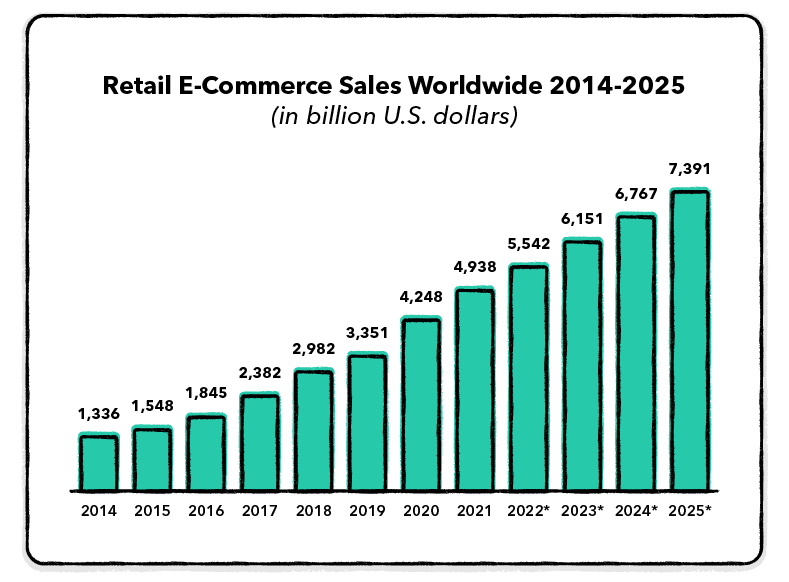
When a shopper decides to make a return or exchange from your Shopify store, they expect to find a customer-friendly return policy and an easy-to-use experience. This means that the process should be quick and simple for them to complete.
However, eCommerce returns are as unique as the company and the items it sells. That’s why most platforms don’t include built-in eCommerce return automation.
The truth is, returns are more complicated than purchases. Food return standards differ from those for consumer electronics and furniture has its own set of procedures in comparison to fashion or apparel rejections!
It comes as no surprise that, when you return something, the process varies depending on the item you’re trying to return. For example, returning a watch is much more different from returning a weed trimmer.
Retailers across all industries experience the same vexing issue of rising average product return rates, especially when it comes to online stores. In fact, the average eCommerce return rates are hovering around 33%, according to the Wall Street Journal, and that can take a toll on your productivity.



To be fair, Shopify enables you to create and manage returns, send shipping instructions and return labels to your clients, track returned items, restock inspected goods, and return payments to your consumers from the Shopify admin.
That already sounds like a lot of functionalities, right?
As a matter of fact, you can accomplish quite a few things with Shopify’s default returns:
But when you’re dealing with a considerable number of returns, potentially being a target of return abuse and fraud, all while trying to scale your Shopify brand, these features are far from enough.
The process should go something like this:
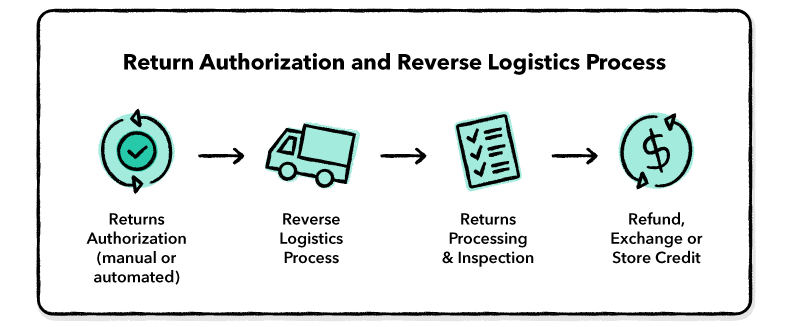
There are a few reasons, in fact, and we’ll go through each and every one of them to help you make an informed decision.
Besides the most common return reasons, there are exceptions you need to consider and be able to solve as quickly as possible, so why waste energy on basic tasks when you could automate them to focus on those special cases that need your team’s attention.
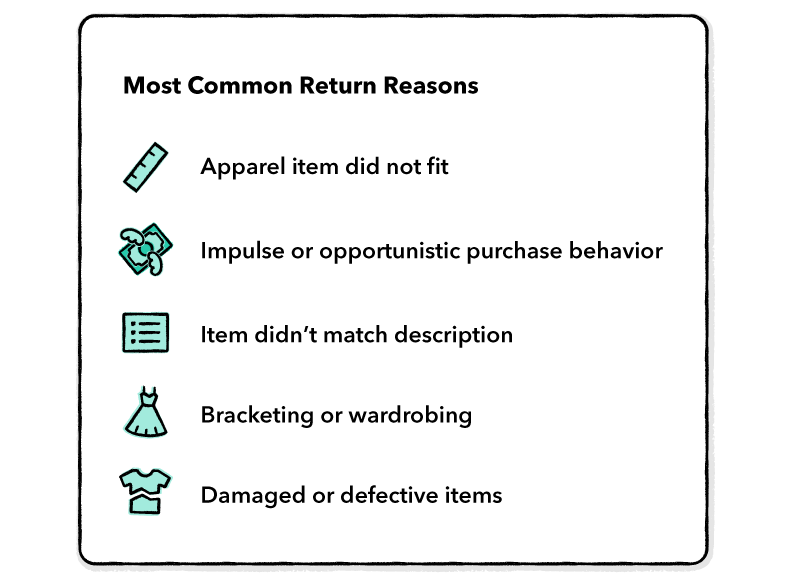

If you’ve made up your mind about ditching manual returns in favor of automatic RMA solutions, you have two main options:
Truth be told, there’s no shortage of return management apps for Shopify retailers.
The moment you start browsing the post-purchase service category, results will start flowing in. In fact, you might have too much to choose from. But a significant part of these apps only covers the customer experience aspects of reverse logistics, leaving you with much room to fill using other tools that work on a deeper, operational level.
But don’t get discouraged. These apps are quick and easy to use, providing you with most of the features you need in order to please your customers on their end. If you’re having a tough time generating your return labels or want some help in return shipping logistics, some of these platforms can help with those issues as well— make sure you do your research before investing in any of them.
On the other hand, oftentimes, more complex problems arise on both the customer experience and eCommerce operations side, and this is where operational returns management software comes into play. These solutions are designed to solve more challenging and diverse problems on both customer’s end and the operational teams’ end.
More specifically, operational return tools help you improve all processes involved in reverse logistics, enhancing back-end operations, all while making it simple for the customers.
The biggest difference between these two depends on how complex are the returns processes they’re trying to facilitate.
In fact, think of this as the difference between front-end and back-end operations for a website. Front-end covers mostly the aesthetic elements users interact with when using a product and the experience they have while they’re interacting with it. Meanwhile, back-end development focuses on the side of a website users can’t see or interact with, but it is the core that makes the entire website actually work.
Ideally, you should look for returns management platforms that cover both sides of the coin.


If you want to enable your customers to return and exchange products much more conveniently, you should consider switching to a separate returns management app. This way, customers can enjoy every interaction with your brand, enabling you to turn returns into future purchases.
For example, you’ll be able to send them updates regarding their return status to ease their post-purchase anxiety while making sure no one profits off your return policy.
Here are our top picks for the updates you can implement for a better post-purchase experience:
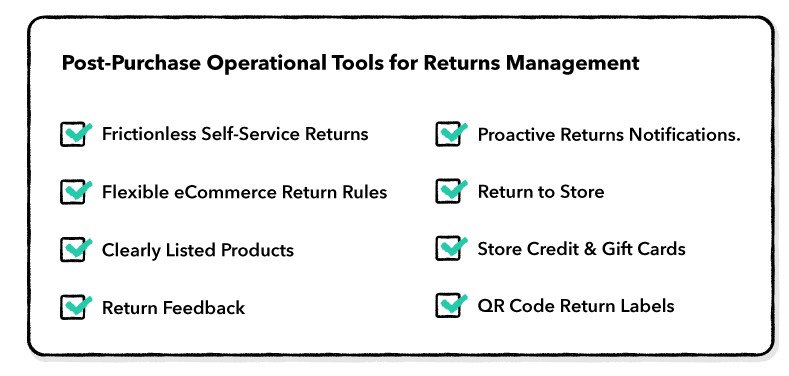
Depending on the volume of returns, the size of your business, and your current returns management needs, you might want to opt for certain tools.
To make things easier for you, we’ve compiled a list of 5 memorable solutions that can help you take returns management to the next level.
WeSupply enables you to automate even the most particular cases. For instance, if a customer marks multiple products for return and refund, you have the possibility to only refund each item as you receive them and upon thorough inspection— no more return fraud!
Also, in certain industries, most returned products cannot be resold (i.e., perishable items such as personal care products), so our self-service return platform lets you use Intelligent Dispositions to send each item to the right place from the beginning and cut down on additional costs from transportation between warehouses.
Another must-have feature is the option to provide customers with a store credit coupon or gift card instead of reimbursing the amount to the original payment method (e.g., point of sale transaction, online payment, etc.). This helps you drive future purchases and increase brand loyalty.
Just think of it this way. Instead of having to wait for the money to reach their bank accounts, they can instantly make another purchase using the online store credit or surprise their loved ones with gift cards to your online store. It’s a win-win situation, for sure!
Moreover, WeSupply enables you to also provide instant exchanges and create a return shipping label directly within the platform, choosing from both prepaid shipping labels and scan-based ones, from over 1000 carriers worldwide.
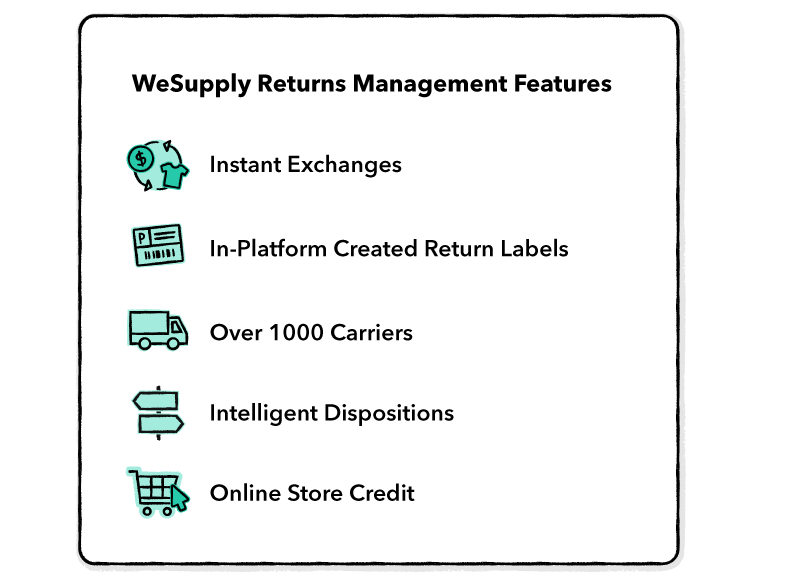
Next time customers visit your online shop’s site, you can create for them an experience that is worth 5 stars— printerless scan-based or prepaid labels, quick self-service returns, and proactive notifications all the way!
That’s a deal you cannot pass. Get started with our 14-day free trial, and see for yourself!
That's a deal you cannot pass!
AfterShip Returns Center works well for startups and smaller Shopify brands that need a little pick-me-up that is more than the basic Shopify return tools. It’s easy to set up, so you’ll be up and running in no time.
Aftership Return Center is an affordable return management solution that comes with a variety of return features with basic configuration options.
However, it’s not meant for retailers who often have split shipments and complex return policies that need integration with ERP systems or have an entire team processing complex return scenarios.

For instance, restocking fees are not available in the platform, and neither is a return policy enforcer that would otherwise help prevent return fraud when dealing with a significant number of returns.
Narvar Return & Exchange app for Shopify enables Shopify retailers to provide a variety of return options, from returning by mail to returning in a nearby store. It helps you create custom return rules, policies, and fees for different products or customer segments to offer a differentiated experience.

However, pricing can vary highly, depending on the number of orders and functionalities you are using. Based on discussions with clients that moved from Narvar to WeSupply, it was a yearly contract starting from around $30,000 per year for basic functionality, and the pricing goes up from here.
Loop Returns focuses on promoting exchanges over returns to save up on refunds and increase brand loyalty. It enables you to have full control over how and when returns are automatically or manually approved, and you can choose which events trigger automatic approval.
Moreover, Loop lets you return products to warehouses, vendors, donation centers, and repair centers.

However, there are some features it’s missing, more specifically you cannot add a restocking fee when customers are returning the item for a refund. That means you have to cover all costs attached to reselling the products. Additionally, physical return processing is not yet available in Loop Returns, making it a bit more difficult to inspect items in order to make sure they’re eligible for return.
Returnly is an exchange and returns platform that works mostly with Shopify brands. It enables store owners to automate most of their return processes for increased productivity, saving them some time.
One main selling point is that they offer Green Returns, also known in the industry as “Keep the Item.” This means that customers get to keep an item that can’t be resold to reduce carbon emissions caused by transportation, product packaging, and landfill waste.
On that same note, Returnly offers in-store returns for online purchases, eliminating the need for boxes or physical return labels. Your store employees can process the return and give their money back using the Returnly app, also enabling you to reduce return-to-stock time.

However, there are also downsides to using Returnly, since it’s not really designed for complex returns scenarios where you might need to charge for restocking fees or heavy items that require special attention.
The short answer is “you don’t.”
Joking aside, you can proceed with returns and refunds from your Shopify admin page very well, except that it’ll take more time and effort. So why settle for less?
You have the opportunity to implement a returns management tool to help you eliminate that extra work and concentrate on making the post-purchase experience positive and memorable.
You’ve got plenty of options, as we’ve actually mentioned above, and we stand with WeSupply as your complete order tracking and returns management solution.
Not convinced yet? Check out the self-service return demo to see the platform in action and get started today!
Learn how automated returns
work in WeSupply!
Want to learn more about retail return trends in 2023?
Download the full report to get exclusive insights from WeSupply!

Want to grow your eCommerce Shopify store? We’ve compiled a list of 10 essential apps you need this year to successfully scale your business, so keep reading!

Step by step guide in engineering the perfect ecommerce return policy. Download the free return policy generator to get started!

Our expectations can get the best of us, then reality strikes. See in this article what’s the truth behind your online returns expectations!

What is happening in the retail industry in terms of returns? Read this article to find out what are the latest retail returns trends in 2022!

EVEREVE’s returns process took a 180-degree turn by using WeSupply’s Magento & Custom API integrations like Zendesk, Celerant, Veeqo

With WeSupply Paravel reduced time and complexity by integrating all systems into one, rather than hundreds of integrations with many platforms and carriers.

Learn more about return fraud signs to watch out for and best practices to help you avoid fraudulent returns altogether.
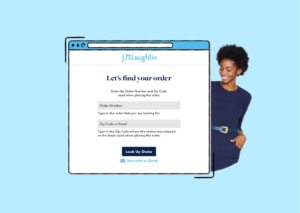
WeSupply was able to develop a native integration with Aptos, a huge omnichannel retail management software, that allows JML’s customers to track their packages and make returns in an automated and branded interface.

Managing returns has never been easier! Check out the returns management best practices in this article to learn how to simplify the process.